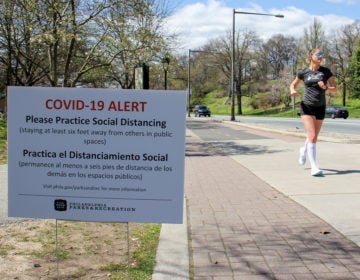How to make good habits stick
How do we make create good habits, like exercising more or eating healthy food? A new study finds paying people even pennies can help. Today: how to make habits stick.
Listen 49:00
24 Hour Fitness Cycle Group Exercise Class. Exercising more is a common New Year's resolution. (24 Hour Fitness)
Most people have the best of intentions to exercise regularly, eat right, and finish work or that home project on time. But our gym membership or home exercise equipment often sits idle and we enjoy too many donuts, burgers and fries. A new study in the journal Nature, however, offers some hope to getting people motivated. Looking at over 60,000 participants, researchers found that paying people – just pennies — to workout turned out to be a powerful incentive.
This hour, we talk with one of the lead authors, University of Pennsylvania Wharton School’s KATY MILKMAN, about the study’s findings and how the lessons can be applied to our own lives, so we make habits that stick. Milkman is an expert on behavior change and the author of the recent book, How to Change: The Science of Getting from Where You Are to where You Want to Be.
Guest
Katy Milkman, Professor at the Wharton School of the University of Pennsylvania and co-director of The Behavior Change for Good Initiative. She’s the author of How to Change: The Science of Getting from Where You Are to where You Want to Be. @Katy_Milkman , Podcast: Choiceology
Recommended reading
Nature, Megastudies improve the impact of applied behavior science –
NBC, Study unlocks the secrets to developing a regular workout habit – “The best-performing program paid people 22 cents per gym visit. If they missed one day, they got an extra 9 cents on top of it for their next visit, as long as they missed only one. ”
CNN, How to Build a Habit in 5 Steps – “Having a bite-size objective makes it less daunting to get started and easier to see your progress.”
Washington Post, These are the text messages that get people to take vaccines – “Why do text message reminders using phrases such as “reserved for you” and “waiting for you” work so well? It might be because this language makes patients feel as if the vaccine belongs to them, and they may not want to miss out on “their” dose.”
WHYY is your source for fact-based, in-depth journalism and information. As a nonprofit organization, we rely on financial support from readers like you. Please give today.





